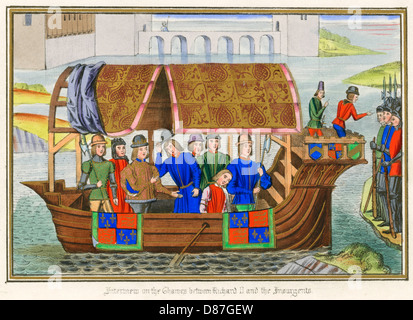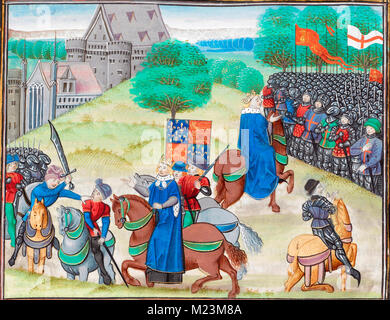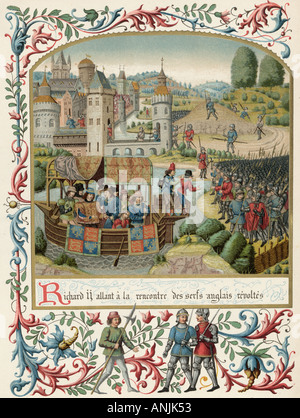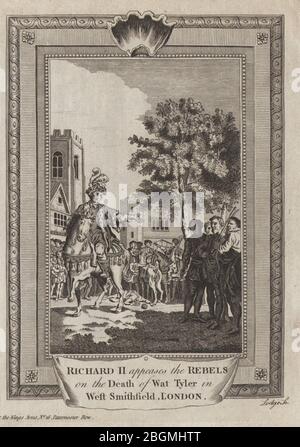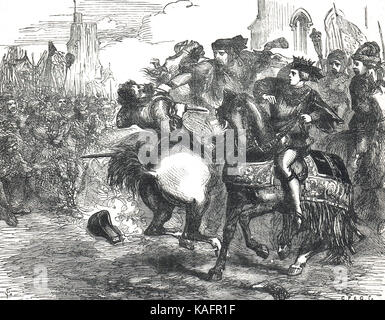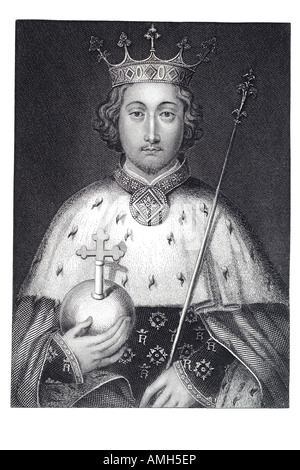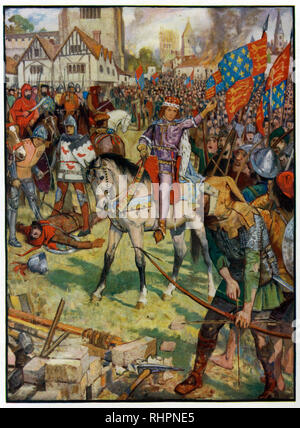
RMRHPNE5–Richard II and Wat Tyler. By Henry Justice Ford (1860-1941). Walter 'Wat' Tyler (d1381) was a leader of the 1381 Peasants' Revolt in England. He marched with rebels from Canterbury to London to oppose the institution of a poll tax and demand economic and social reforms. Tyler was killed by officers loyal to King Richard II during negotiations at Smithfield, London.
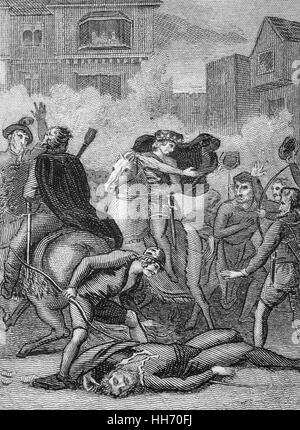
RMHH70FJ–Walter 'Wat' Tyler was a leader of the 1381 Peasants' Revolt in England. He marched a group of rebels from Canterbury to the capital to oppose the institution of a poll tax and demand economic and social reforms. While the brief rebellion enjoyed early success, Tyler was killed by officers loyal to King Richard II during negotiations at Smithfield, London 15 June 1381.
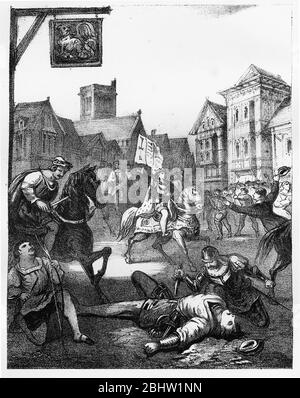
RM2BHW1NN–Engraving of the death of Wat Tyler, London, England. Walter 'Wat' Tyler (c.1320 - 1381) was a leader of the 1381 Peasants' Revolt in England. He marched a group of rebels from Canterbury to the capital to oppose the institution of a poll tax and to demand economic and social reforms. While the brief rebellion enjoyed early success, Tyler was killed by officers loyal to King Richard II during negotiations at Smithfield, London. (wikipedia)
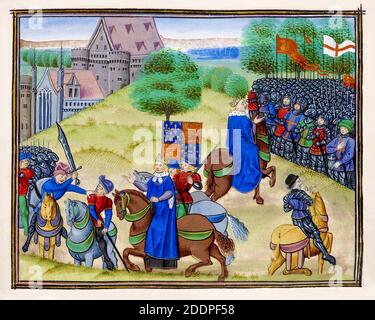
RM2DDPF58–The Death of Wat Tyler (circa 1320/43-1381) on 15th June 1381 with King Richard II of England looking on, 15th Century illuminated manuscript by Jean Froissart, 1483
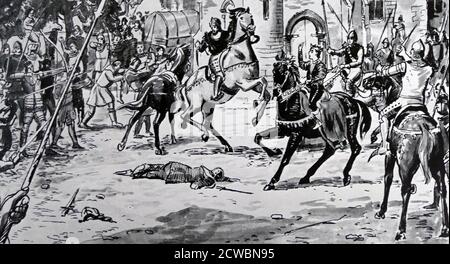
RM2CWBN95–Illustration depicting the 1381 Peasants' Revolt. The Peasants' Revolt, also named Wat Tyler's Rebellion or the Great Rising, Walter 'Wat' Tyler (died 15 June 1381) was a leader of the 1381 Peasants' Revolt in England. He marched a group of rebels from Canterbury to the capital to oppose the institution of a poll tax and demand economic and social reforms. While the brief rebellion enjoyed early success, Tyler was killed by officers loyal to King Richard II during negotiations at Smithfield, London.
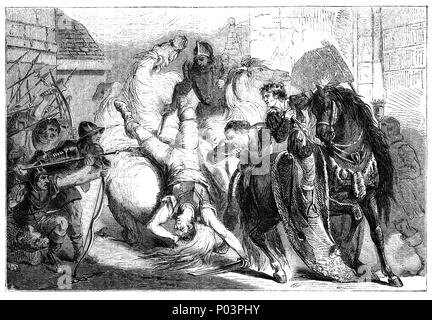
RMP03PHY–Walter 'Wat' Tyler (died 15 June 1381) was a leader of the 1381 Peasants' Revolt in England who opposed the poll tax and demand economic and social reforms. After a meeting with King Richard II, Sir John Newton insulted Tyler. A violent arguement broke out with Newton and William Walworth, Lord Mayor of London. Severely wounded, Tyler managed to ride thirty yards before he fell from his horse. In the disorder that followed, he was taken to a hospital for the poor, but was tracked down by the mayor, brought back to Smithfield, and publicly decapitated.
